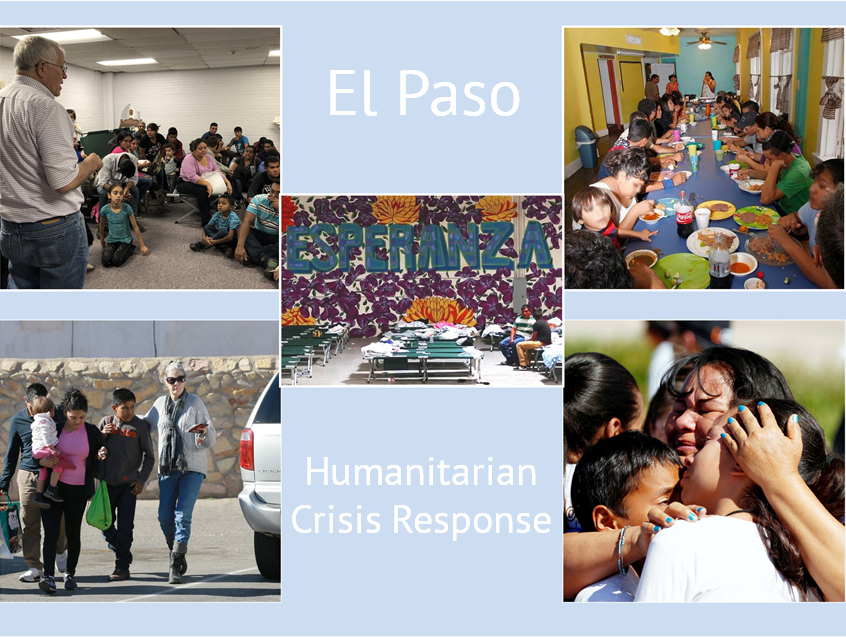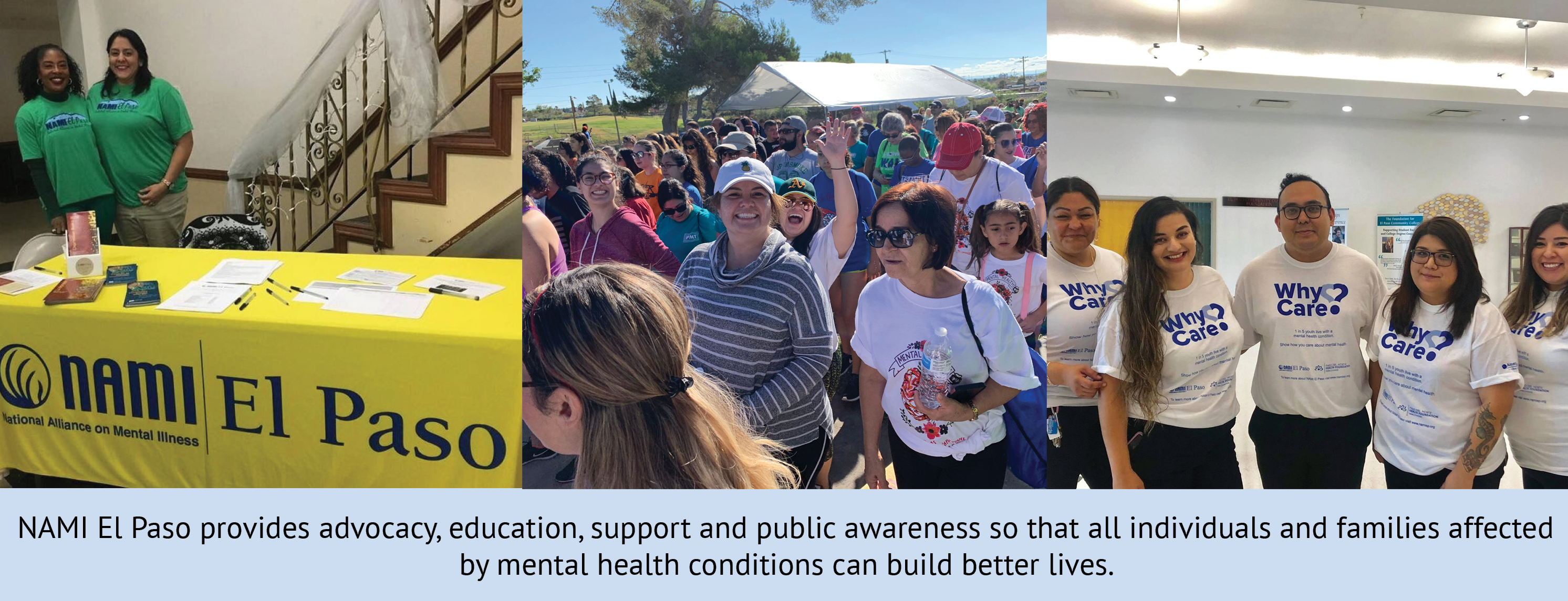2020 All-America City – El Paso, TX
The City of El Paso has a longstanding history of healthy working relationships with community-based organizations, businesses, and civic organizations within the city. They do this in order to foster consensus building processes and ensure decision-making is well-informed by community input. Similarly, the City of El Paso and its partner organizations pursue various avenues for engaging residents from all segments of the community to develop solutions to problems and improve public trust.
Time and again, the people of El Paso have come together – unified and determined in resolving its challenges and rising to support its regional and international neighbors in overcoming extreme adversity and realizing far-reaching and mutually beneficial goals. As evidenced in these highlighted projects, El Paso is a community of excellence, progress, and unwavering resilience.
El Paso’s Response to the Humanitarian Crisis at the Border
In 2019, El Paso experienced a record number of asylum seekers and refugees from Central and South America. El Pasoans united to volunteer at local shelters operated by various organizations, such as the Catholic Diocese of El Paso and Annunciation House, a non-profit volunteer organization offering hospitality to migrants, immigrants, and refugees.

The united approach brought together local community-based agencies, civic leaders, and countless volunteers who donated time, food, medical care, and personal hygiene products to address the immediate needs of the asylees and other migrants and to help them reunite with their families. Churches throughout the area held food and clothing drives, identified parishioners for volunteering, and raised funds to help shelters.
Annunciation House has provided shelter, clothing, food, and other basic necessities for hundreds of thousands of migrants, mostly from Mexico and Central America. Since the summer of 2014, they have organized and spearheaded the South Texas Immigrant Response network to provide short-term hospitality to the many thousands of refugees currently arriving at the southern border.
In addition, Annunciation House facilitates face-to-face encounters between its participants and people and groups in both El Paso and Ciudad, Juárez. Deeply rooted in El Paso’s history and through its Border Awareness Experience (BAE) initiative, Annunciation House aims to raise awareness among the international community about everyday challenges that the region confronts.
There was also binational cooperation and collaboration that brought about advocacy and response in Ciudad Juárez as the city’s officials led the way in converting an old factory into a shelter that could take thousands of migrants who had traversed the whole of Mexico to get to the U.S.
Community-Wide Mental Health and Emergency Response
As in other communities, there persists a lack of basic understanding and training for people concerning mental health and services available to community members in El Paso. With the Paso del Norte Health Foundation taking a leadership role in addressing this concern, El Paso has made significant headway in building its capacity to meet the mental health needs of its residents.
In 2012, the Paso del Norte Health Foundation commissioned a situational analysis to gauge mental health stigma within the community, including neighboring Ciudad Juárez and Southern New Mexico. The analysis revealed that stigma associated with mental illness abounded throughout the region.

In response to this finding, the Foundation launched a community-level intervention, funding organizations to implement evidence-based programs, such as Mental Health First Aid. The goal was to increase mental health literacy and service offerings for families and health workers.
The overarching goal of this initiative is to reduce stigma and negative biases with respect to mental illness. These efforts have led to implementation of Empower Change, whereby the Paso del Norte provides funding opportunities to community-based organizations to build the region’s network of mental health care providers. This Collective Impact Model is based on the assumption that a singular approach is insufficient in satisfactorily addressing complex social problems.
Access to services is supported through the city’s Department of Public Health’s 2-1-1 Rio Grande Area Information Center (RGAIC). It provides a free helpline 24 hours a day, seven days a week, 365 days a year staffed by trained information & referral specialists. Currently, the program staff maintains working relationships with 342 organizations offering over 1,500 community-serving programs.
People and Pets – Reaching Community-wide “No-Kill” Status
The City of El Paso’s Animal Shelter is the only open admission shelter in the entire region with an annual intake of nearly 27,000 homeless pets. The City of El Paso approved a bold plan that would lead to the large shelter achieving “No-Kill” status by 2020. The formula for No-Kill includes aggressive pet retention programs, spay and neuter programs, community engagement rather than enforcement, and robust adoption programs.
The first step was to reduce the number of animals being admitted to the shelter. This was accomplished by agreements with Fort Bliss, The County of El Paso and Ysleta del Sur Pueblo, a nearby Native American tribe, to participate in Trap-Neuter-Return (TNR) programs. Additionally, the Animal Protection Partner Academy trained officers to abide by lifesaving programs geared at keeping pets in their homes where they belong rather than being sent to the animal shelter.

The next crucial project was to provide healthier pets. The El Paso Veterinarian Association gathered data to find the hot spots in the community where disease came from and the Community Foundation’s Animal Collaborative set up free vaccination clinics in those areas. Supplies and volunteers from all over El Paso showed up to vaccinate over 1,500 pets.
Another major initiative was the Kiddie Reading Club, which provided opportunities for children to read books to the kittens in shelters. It provided needed interaction for the kittens and also provided the reader with a chance to hone reading skills and build confidence.

As of 2019, the shelter has an 87% live release rate and is on target to reach 90% by the end of 2020.
Some Related Posts
Thank You to Our Key Partners



